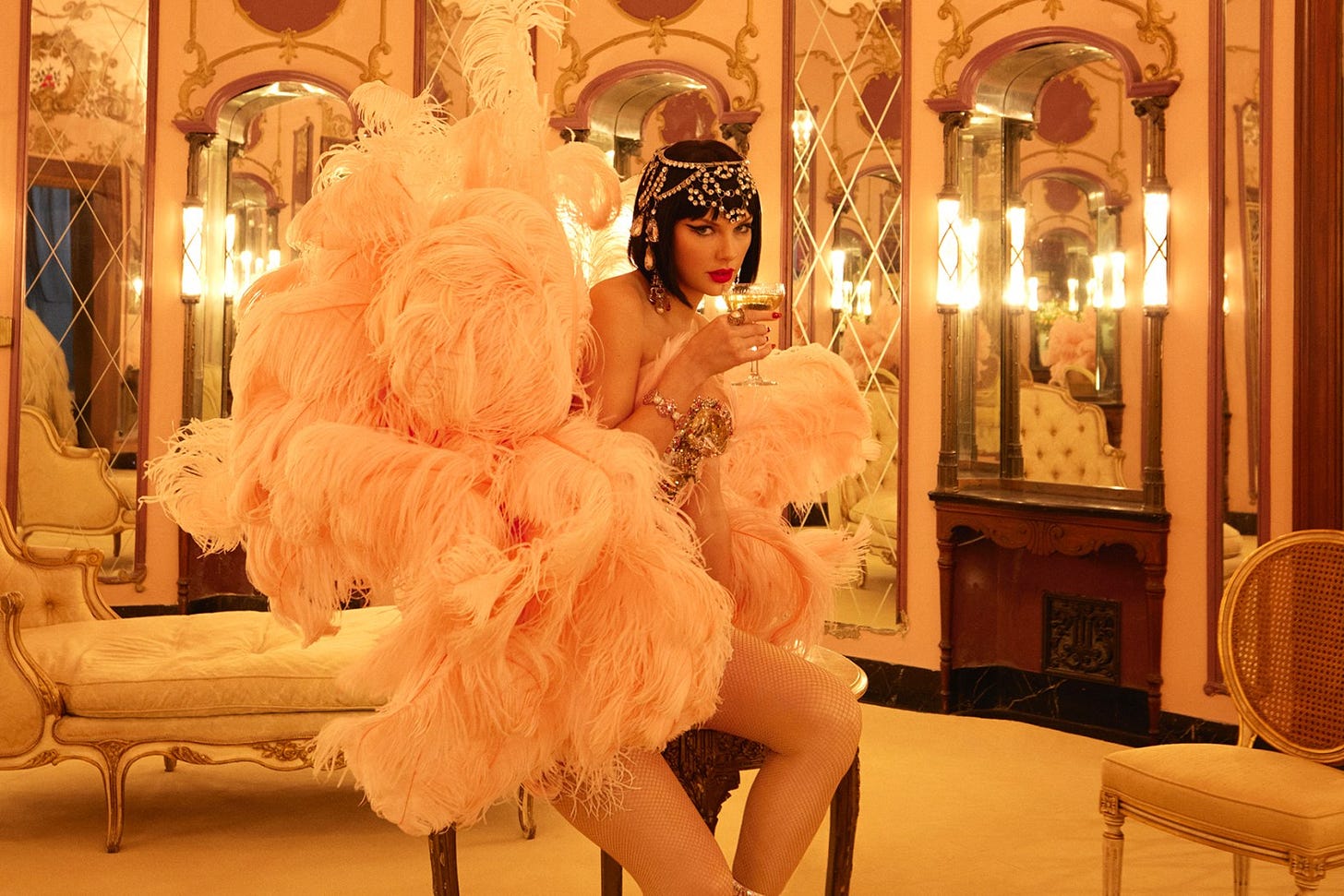What Taylor Swift teaches us about choice feminism
It is in fact possible to girlbo$$ too close to the sun
The internet is currently awash with takes on Taylor Swift’s new album. Perhaps you have noticed! After my initial sigh of exhaustion, I found that many of these very online takes are doing some great critical work. Many are also, unfortunately, kind of a mess.
But it’s with a spirit of openness to conversations about class, race, and feminism that I wade into these chaotic and muddy waters, and invite you to join me for just a moment more, because this particular cycle of discourse, despite its innumerable flaws, illustrates that the problem of choice feminism is very much still with us.
From the first listen, I felt this album was a set of bops with occasionally catchy and occasionally very contrived lyrics. But I felt strongly the cultural dissonance of Swift’s latest era. This is the Travis Kelce album, and it shows. And I’m not just talking about his wood. I’m glad she’s having some good sex, even if the play with sexuality on this album feels cribbed from her campy contemporaries. But does she not know into which America she was releasing this album?
My own critiques aside, as usual, people’s responses to the album have been even more telling than the album itself. While we’ve witnessed in recent months the slow cultural realization that all trad wives are actually girl bosses who hold jobs as content creators and answer to their boss-husbands (!), many are still stuck defining feminism as a woman’s right to choose… if she wants to be a mom or have a career.
And it’s this mentality that has characterized so much of the Swift album discourse, and that has made it hard to parse more meaningful analysis. Let’s discuss.


